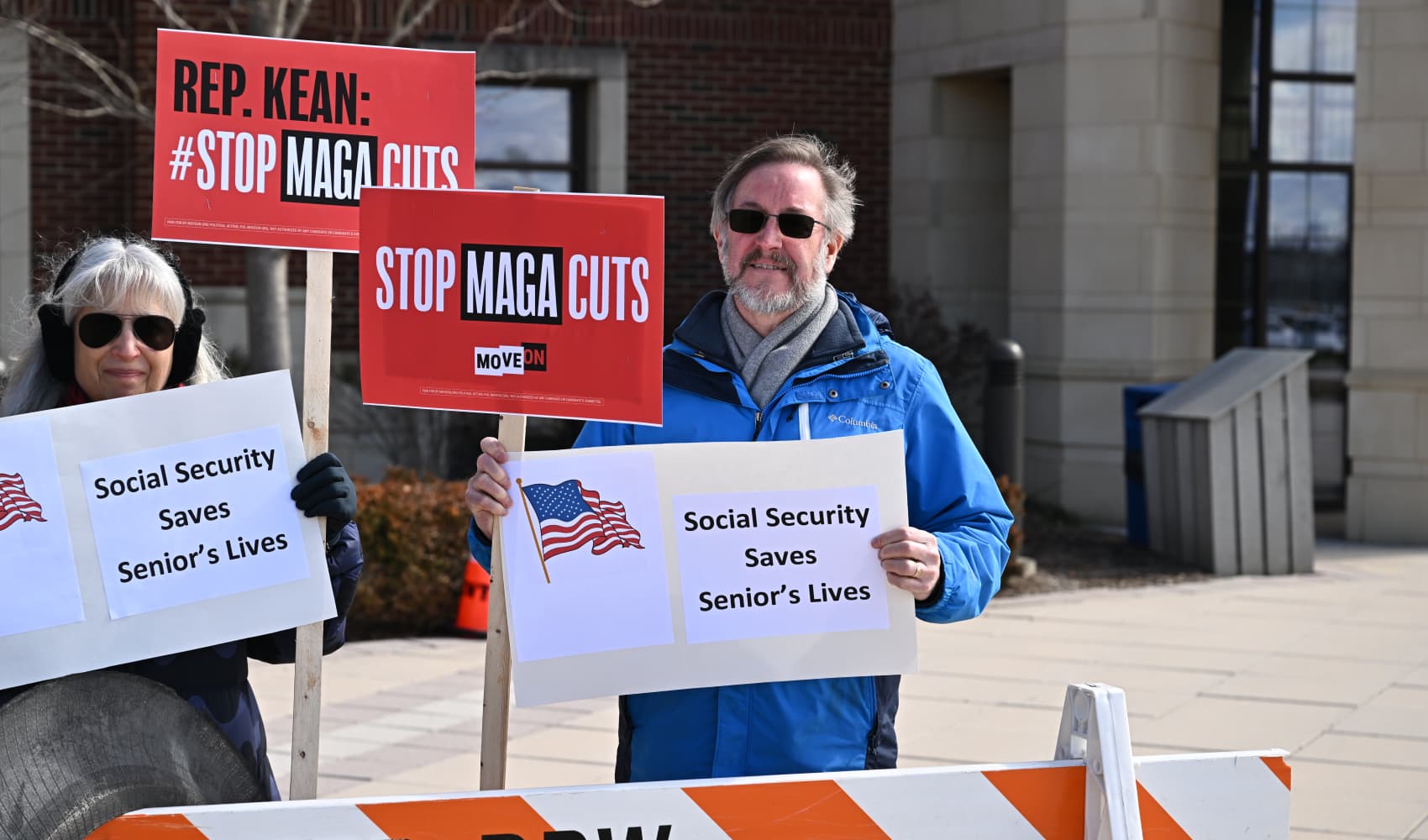
- Bill Nye, 'The Science Guy' says he is less worried about artificial intelligence ending the world than giant solar flares.
- "Outrage" over use of generative AI by students in school doesn't bother the celebrity educator either. "This is just what's going to be," Nye said at the CNBC Technology Executive Council Summit on AI last Tuesday.
- And in response to a series of questions based on a Google Bard prompt, Nye told the AI how it can help solve some of the world's biggest problems.
You may not know this, but Bill Nye, "The Science Guy," has professional experience overseeing new and potentially dangerous innovations. Before he became a celebrity science educator, Nye worked as an engineer at Boeing during a period of rapid changes in aviation control systems and the need to make sure that the outputs from new systems were understood. And going all the way back to the days of the steamship engine innovation, Nye says that "control theory" has always been a key to the introduction of new technology.
It will be no different with artificial intelligence. While not an AI expert, Nye said the basic problem everyone should be concerned about with AI design is that we can understand what's going into the computer systems, but we can't be sure what is going to come out. Social media was an example of how this problem already has played out in the technology sector.
Get DFW local news, weather forecasts and entertainment stories to your inbox. Sign up for NBC DFW newsletters.
Speaking last Tuesday at the CNBC Technology Executive Council Summit on AI in New York City, Nye said that the rapid rise of AI means "everyone in middle school all the way through to getting a PhD. in comp sci will have to learn about AI."
But he isn't worried about the impact of the tech on students, referencing the "outrage" surrounding the calculator. "Teachers got used to them; everyone has to take tests with calculators," he said. "This is just what's going to be. ... It's the beginning, or rudiments, of computer programming."
More important in making people who are not computer literate understand and accept AI is good design in education. "Everyone already counts on their phone to tell them what side of the street they are on," Nye said. "Good engineering invites right use. People throw around 'user-friendly' but I say 'user figure- outtable.'"
Money Report
Overall, Nye seems more worried about students not becoming well-rounded in their analytical skills than personally thinking AI is going to wipe out humanity. And to make sure the risk of the latter can be minimized, he says we need to focus on the former in education. Computer science may become essential learning, but underlying his belief that "the universe is knowable," Nye said that the most fundamental skill children need to learn is critical thinking. It will play a big role in AI, he says, due to both its complexity and its susceptibility to misuse, such as deep fakes. Noting the influence of Carl Sagan on his own philosophy, Nye said, "We want people to be able to question. We don't want a smaller and smaller fraction of people understanding a more complex world."
During the conversation with CNBC's Tyler Mathisen at the TEC Summit on AI, CNBC surprised Nye with a series of questions that came from a prompt given to the Google generative AI Bard: What should we ask Bill Nye about AI?
Bard came up with about 20 questions covering a lot of ground:
How should we ensure AI is used for good and not harm?
"We need regulations," Nye said.
What should we be teaching our children about AI?
"How to write computer code."
What do you think about the chance for AI to surpass human intelligence?
"It already does."
What is the most important ethical consideration for AI development?
"That we need a class of legislators that can understand it well enough to create regulations to handle it, monitor it," he said.
What role can AI play in addressing some of the world's most pressing problems such as climate change and poverty?
Nye, who has spent a lot of time thinking about how the world may end — he still thinks giant solar flares are a bigger risk than AI which, he reminded the audience, "you can turn off" — said this was an "excellent question."
He gave his most expansive responses to the AI on this point.
Watch the video above to see all of Bill Nye's answers to the AI about how it can help save the world.






